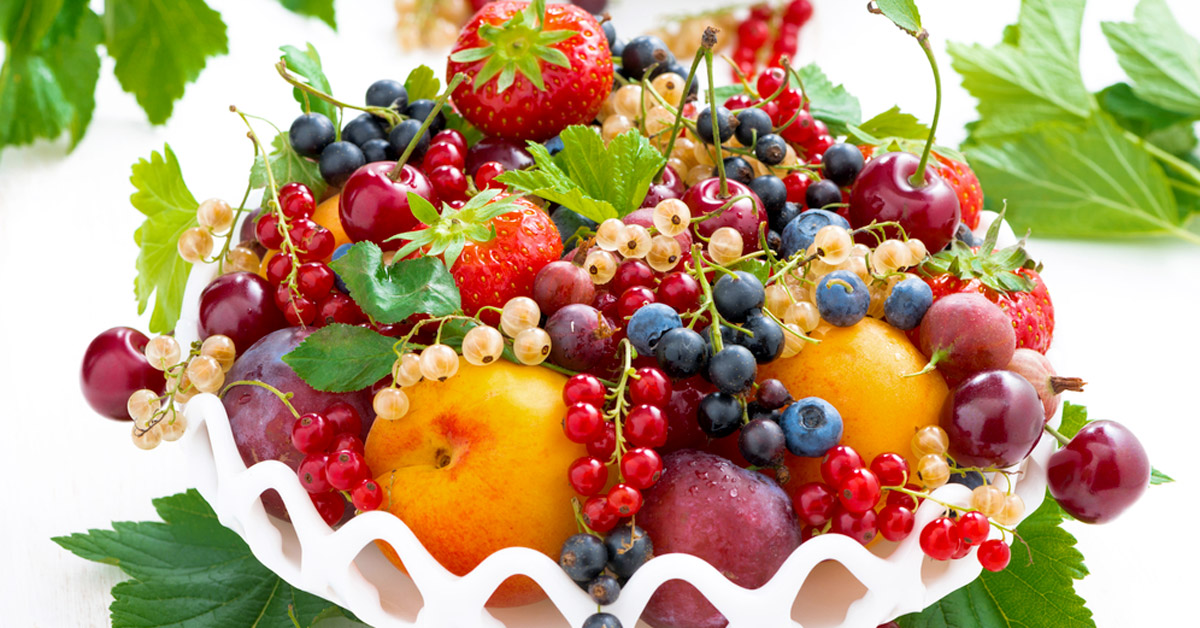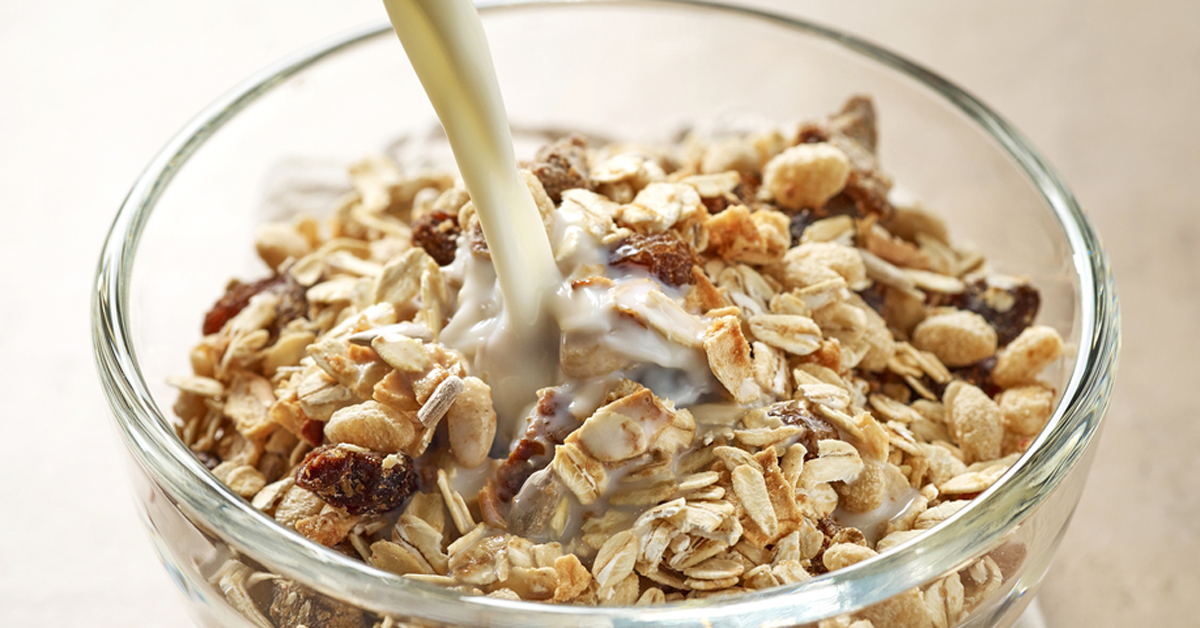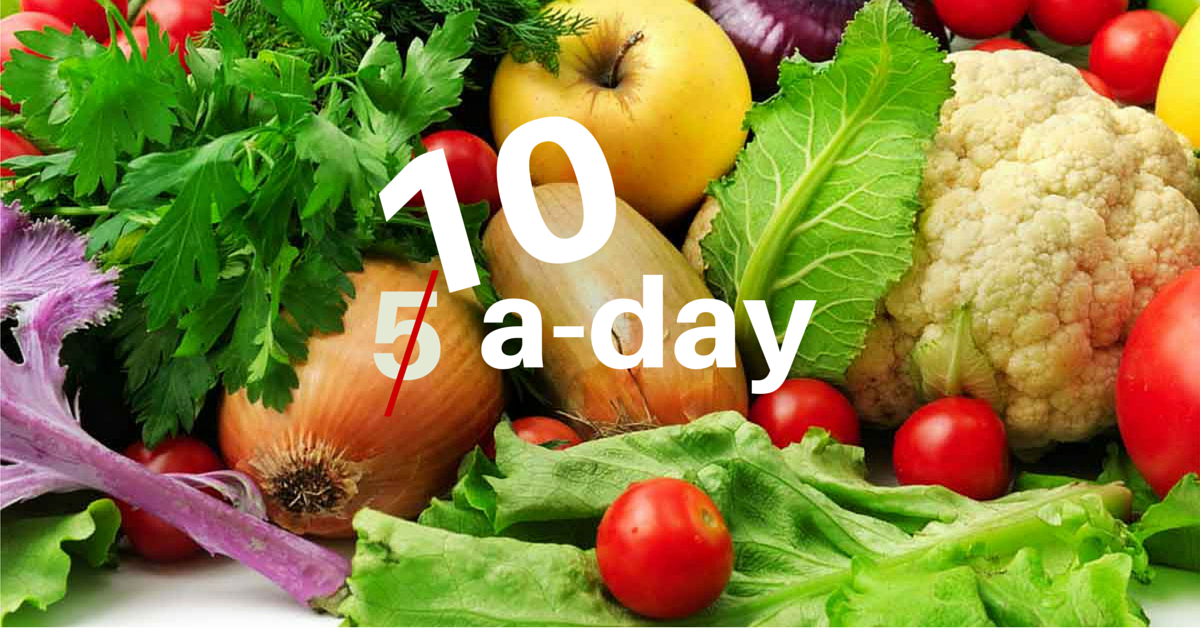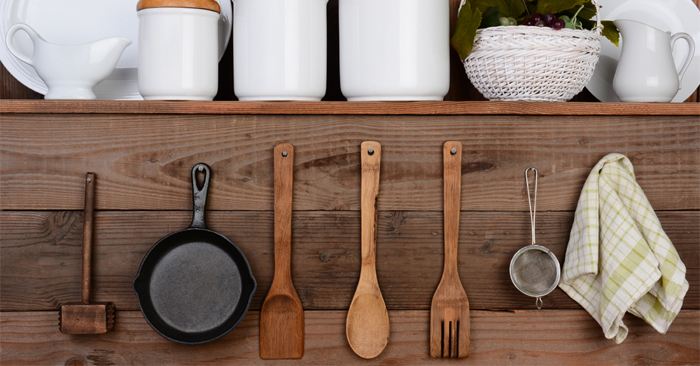We regularly publish some great healthy living tips, new recipes and other Prune tidbits on our blog
Dieting
5 Top Tips on Comfort Eating ... without piling on the pounds!
Posted Thu, Jan 16, 20 by Sunsweet
So, what do you think…is it really possible to indulge yourself with tasty, comforting and warming food, without piling on the pounds? Or, come the summer, do you fully expect to be dieting? At Sunsweet, we believe that comfort does not necessarily have to mean calorific.

5 Top Tips on Comfort Eating...without piling on the pounds!
Gaining weight. It's something that most of us accept as “just one of those things”. The World Health Organisation reports that more than 1.4 billion adults are overweight, the findings of which could prove to be very significant.
Why do we crave Comfort Food in winter?
Comfort Foods tend to be high in carbohydrate and sugar, and there are lots of theories about why we crave these heavier foods more in the winter months. There's a school of thought that winter weight gain could be our survival instinct kicking in; that we're fattening ourselves up to get through the colder months and keep our mood buoyant. And there's another more practical thought: when the days get shorter and temperatures drop, our resolve for healthy living plummets and we descend into a circle of eating more, moving less and, ultimately, gaining weight.
So what can be done to counter the sluggishness caused by overindulging?
Our 5 top tips
Plan ahead to maximise meal-times and super-charge your snacks
- Seize the opportunity to stock up the store cupboard with more nutritious snack alternatives. Dried fruit – like Sunsweet prunes – keep well, pack a nutritious punch and are surprisingly versatile adding a rich, fruity depth to both sweet and savoury dishes.
- Plan meals ahead – and, where possible, prepare them in advance - so that “I’m starving” feeling doesn't automatically equate to grabbing something quick, calorie-laden and unhealthy. Soups and stews are nourishing and warming and if you choose your recipe wisely can be low in fat and calories, and high in taste and comfort, too. Our Minestrone with Prunes Soup is a lovely veggie option with less than 300 calories.
- Drinks and snacks can be tasty, little pick-me-ups. But the ‘easy-to-reach’ sugar laden snacks and super-sized coffees can be a disaster, calorie-wise. High-fibre snacks served with a warm drink – herbal teas are perfect - can help to fuel the body and keep everything moving. And an attractively presented plate of fruit, fresh or dried, couldn't be simpler or quicker.
- Life would feel pretty dull without the occasional treat. And from time to time, if you really fancy something chocolatey, there's nothing sinful about giving in to temptation. Do a bit of research though to come up with healthier alternatives. Our Paleo Chocolate Pudding is an excellent example of a treat that is flavourful, tempting, looks great, and under 410 calories, too!
- Naturally sweet, prunes and prune juice have no added sugars, just naturally-occurring ones; a quick and easy way to keep sweet cravings at bay. Also did you know that a prune puree (blitzing the fruit with water) can be used to successfully replace fat in cakes and cookies? You can find out more, here. And, finally... A warm bath. Super-cosy PJs. Flickering candlelight. A roaring fire. And a good old-fashioned hug. Totally Comforting, Totally Indulgent. Totally Calorie Free!
Enjoy!
Are you beach body ready?
Posted Fri, Jun 11, 21 by Sunsweet
Beach body ready. It’s a phrase that can strike fear into the hearts of the best of us! So, what’s the skinny? Are crash diets a no-no? The jury may still be out on crash diets. So is there a less drastic and more long-term approach that we can take?

Do crash diets work?
The jury is out on crash diets. One study of 200 obese adults, published in The Lancet, found that although crash-dieters did lose weight, the approach can be dangerous. That’s because it’s tricky to get all of the nutrients that the body needs when you significantly reduce food intake. So, this summer, why not take a less drastic and more long-term view?
Is there a different approach?
Overeating of any kind is likely to lead to weight gain. But research from Liverpool University suggests that eating 140-170g prunes daily, as part of a weight control diet, may have a positive contribution to weight loss.
Whether you’re at a music festival, having a picnic, on-the-road with the family or just going about your daily business, snacking is an inevitable part of contemporary life. It goes without saying that unhealthy snacks like crisps, biscuits and fizzy drinks should be limited to being an occasional treat. But there is evidence to suggest that nutritious snacks can – and indeed should – form part of a healthy balanced diet.
What’s the science on snacking?
According to the Mayo Clinic, choosing healthy snacks can help to manage hunger and reduce the likelihood of bingeing at mealtimes. The trick is to choose snacks that are satisfying, nutritionally beneficial and relatively low in calories. Because prunes are a fruit - and so lower in energy density than many other snacking options – they can make a convenient, healthy choice when consumed as part of a balanced diet and healthy lifestyle.
Why do we overeat?
Experts in psychology tend to agree that there can be a range of complex, emotional issues behind our propensity to overeat. Learning to tune in to your body and to identify what acts as a trigger for you may be enough for you to make the adjustments needed to reach a healthy weight and to stick to it, long term.
-
Reason #1 You’re constantly on the run
When life is busy and you’re regularly eating on-the-hoof - grabbing what you can, when you can – your eating patterns can end up muddled. You may not be able to remember the last time you sat down for a proper meal. But day-long snacking can prove surprisingly calorific! Try to take a more mindful approach. Plan ahead so you’ve got a more inspiring store-cupboard. Have a repertoire of recipes for simply-prepared dishes up your sleeve. And promise yourself that – from now on - you’ll take a little time out of your day to enjoy your meals. -
Reason #2 You’re craving something other than food
Maybe you’re tired or stressed or both – it’s not uncommon with our hectic lifestyles, after all! Try to be aware of what’s going on for you. If you’re in need of comfort, try not to make food your first port of call. Call a friend. Get outside for a stroll. Give yourself a hand massage. Sometimes a little TLC can go a long way towards filling that gap.
Have a happy and healthy summer!
Please Note: Prunes are good for digestion and help keep you regular, when 100g are eaten as part of a varied and balanced diet and an active lifestyle. Always consult a GP if you have any health concerns.
A step closer to healthier Snacking.
Posted Fri, Jun 11, 21 by Sunsweet
Snacking. It really is an everyday part of modern life. But, watch-out, not all snacks are created equal! So, how can you make healthy choices around the whole snacking issue and yet avoid being caught out by the convenient but calorific-loaded and nutrient-light options when the munchies strike?

The important role of healthy snacks in the diet
Overeating of any kind is likely to lead to weight gain, in the long term. And unhealthy snacks – like crisps, biscuits and fizzy drinks – should certainly be limited to being just a very occasional treat. But there is compelling scientific evidence that nutritious snacks can – and indeed should – form part of a healthy balanced diet. According to the Mayo Clinic, choosing healthy snacks can help to both manage hunger, in the short-term, and reduce the likelihood of bingeing when it comes to mealtimes. But the trick is to choose snacks that can kick hunger into touch while, at the same time, be nutritionally beneficial and keep calorie counts low.
Kids' stuff
The evidence to support the positive role of snacking is even more compelling when it comes to kids. Childhood is a time when young bodies are growing rapidly, and any parent will confirm, kids shoot up fast. But children have smaller stomachs than adults meaning that they usually feel fuller quicker. According to a 2009 study by the WHO, snacking can be a good way for children to meet their extra nutritional needs and to support normal development. Why not give our Prune Energy Balls recipe a go? They're tasty, healthy, easily-made and can last up to a week!
Trends in snacking
In today’s on-the-run society the temptation of the quick-fix convenient snack, often in the form of the nutritional bar, may appear to be just what a hungry tummy ordered. Clever advertising may suggest health values, however, nutritionists agree that not all nutritional bars are created equal! Many are high in refined sugar and can have as much saturated fat as a regular confectionary bar.
A recent Mintel report on snacking suggests that there is a growing preference for healthy food choices. And young people - the Millennial generation of 21 to 38 year olds, for example – were likely to snack for function and focus, with 39% snacking to get an energy boost. And California prunes tick lots of these boxes.
- Sweet (Prunes contain only naturally occurring sugars, with no added sugar.)
- Super-tasty
- Packed with nutrients
- Low Glycaemic Index (GI) of 29, which means that their sugar is released relatively slowly on digestion, helping to avoid the “rush-and-slump” that can be associated with other snacks.
It makes dietary sense to have a repertoire of easily prepared snacks up your sleeve, ideally ones that can be made advance, are suitable for the whole family and can be enjoyed whenever you're on the run. Think school lunch boxes, pre or post-exercise pick-me-ups, an office 'deskfast'. Check out our Prune Energy Balls - tasty, satisfying and nutritious.
Please Note: Prunes are good for digestion and help keep you regular, when 100g are eaten as part of a varied and balanced diet and an active lifestyle. Always consult a GP if you have any health concerns.
Dietary Fibre 101
Posted Fri, Feb 21, 20 by Sunsweet
What exactly is fibre? Why does the body - every body - need it? What happens to our body if we don’t get enough of it? And how can we ensure that we keep getting plenty of it? Read on for everything you - and your family - need to know about dietary fibre.

Our Dietary Fibre 101
OK. We admit that as health topics go, dietary fibre - and the role that it can play in contributing towards a healthy and normally functioning body – is far from being a glamorous one. And yet, dietary fibre is an important health topic. With a seemingly endless increase of pressure on our time and the proliferation of quick, convenient and very nutrient-poor meals, many of us simply do not get enough fibre from the food we eat on a regular basis.
But what is dietary fibre?
In a nutshell, dietary fibre is the tiny parts of things like cereal, vegetables and fruit that cannot be digested in the small intestine. Instead, this dietary fibre passes further along in the digestive system before most of it gets broken down by bacterial action in the colon. Increasing dietary fibre – as part of a healthy and balanced diet - can help to soften stools, making them easier to pass and helping to keep the complex cogs of the digestive system moving!
If you would like a more detailed understanding of how the digestive system works then our 'whistle stop tour of the digestive system' will be of interest to you.
And it seems that fibre has an even more crucial role to play, too. The World Cancer Research Fund (WCRF) reckon that dietary fibre is protective against bowel cancer. Around 12% of bowel cancers in the UK are linked to eating insufficient fibre, less than 23 grams a day.
Types of dietary fibre
Dietary fibre is typically divided into two groups:
- Insoluble Fibre:
This is made up of the skins of fruits, the stalks and leaves of vegetables and the husks and hard coats of seeds. Insoluble fibre is more slowly broken down and its bulk helps with the evacuation of stools.
- Soluble Fibre:
This is more completely fermented in the colon, it retains fluid, softening the stools and making them easier to pass.
Many plant components contain both soluble and insoluble components of dietary fibre. For example, the skins of prunes are composed of insoluble fibre and the pulp and juice are composed of soluble fibre
Dealing with constipation
If you do become constipated, it is even more important than ever to aim for at least 5 portions of fruit or vegetables a day. Fibre-packed dried fruits and natural, unsweetened juices can both count towards this target. Just three prunes a day count for one of your ‘5-a-day’ portions!
Highly processed foods are best avoided as these tend to be higher in fat, salt and sugar and are often lower in fibre. Get into the home-cooking habit. Our recipe pages are a great place to look, for healthy inspiration.
The role of fluids
To help to keep things moving, digestively-speaking, it’s important to make sure that you drink plenty of fluid. If you’re actively taking steps to increase the amount of fibre in your diet, be sure to increase the amount of fluid that you drink, too. The body is super-efficient at extracting fluid from the colon when it is needed for bodily functions. And even slight dehydration can lead to harder stools that are more difficult to pass. Six to eight glasses of fluid a day - water or diluted fruit juices are good choices – is a useful rule of thumb.
If you’d like to find out more about the role of dietary fibre – especially if you suffer from IBS with constipation – please do take a look at our booklet. It’s packed with expert hints and tips:
Please Note: Prunes are good for digestion and help keep you regular, when 100g are eaten as part of a varied and balanced diet and an active lifestyle. Always consult a GP if you have any health concerns.
Is five-a-day still enough? When it comes to fruit and veg, more is definitely more.
Posted Fri, Jun 11, 21 by Sunsweet
With scientific studies now suggesting that five-a-day may no longer be enough, how can we ensure that our family are getting the fruit and veg that they need, for optimum health, while keeping things interesting – and tasty – at mealtimes?

Summer is a great opportunity to finally step into the sunny season with confidence, positivity and gratitude. Phew! And the perfect fuel for all of that? Delicious fruit and veg and plenty of it!
So, is five-a-day still enough?
Based on the World Health Organisation's recommendations, the five-a-day fruit and veg guidelines were introduced in 1990 with the aim of lowering the risk of heart disease, stroke, diabetes and obesity. Almost a third of us struggle to regularly get our five-a-day. But a 12-year study, 2001 – 2013, by University College London has found that we may benefit from actually doubling-up on the official guidelines and aiming for ten portions of fruit and veg a day instead, to significantly lower the risk of premature death. The study’s lead author, Dr Oyinlola Oyebode, went on record to say: “The clear message here is that the more fruit and vegetables you eat, the less likely you are to die at any age. My advice would be however much you are eating now, eat more.”
Variety – the spice of a healthy life
Whether your fruit and veg is tinned, fresh, frozen or dried – like scrummy Sunsweet prunes – it all counts towards your five-a-day. Great news, especially if you're aiming for the more ambitious ten daily portions! The trick is to keep things interesting, so that you and your family don't get bored. And a really great way to do that is to try – for as many of your meals as possible – to have a seasonable focus to the ingredients that you choose.
Did you know that just three prunes count for one of your daily portions? This is great news, especially if you're aiming for the more ambitious ten daily portions! The trick is to keep things interesting, so that you and your family don't get bored. A really great way to do that is to try – for as many of your meals as possible – to have a seasonable focus to the ingredients that you choose. Our recipes pages have lots of inspirational breakfast, mains, salads, desert & sweet treats, salads etc ideas to help you on your way.
Seasonable Treats
With the changing of the seasons, there's something lovely about taking advantage of the natural diversity – the flavours, the textures, the scents and the colours – of seasonable foods. And it's a great way for you and your family to ring the changes at meal-times and to try lots of different foodstuffs throughout the year. Wild garlic, morels and salad staples like spring onions, watercress and rocket are all excellent at this time of the year and make superb foundations for the lighter dishes of springtime as we naturally gravitate away from winter stodge. And if you're feeling inspired by all-things seasonable, why not try growing your own?
Grow your own!
Growing your own is easier than you might think. Vegetable gardening – with a raised bed or even just a handful of pots – is a great excuse to get the whole family out into the fresh air. And eating healthful foods - that you have watched grow from seed – can help to tempt even the fussiest of eaters into trying new things. There really is something magical – for kids of all ages – in the transformation from seeds to shoots to something scrummy. Salads are a super-simple starting point. A sunny spot. Plenty of water. And you really can't go wrong.
And finally...
You can check out Sunsweet's eco credentials, here:
Please Note: Prunes are good for digestion and help keep you regular, when 100g are eaten as part of a varied and balanced diet and an active lifestyle. Always consult a GP if you have any health concerns.
Light Prune Focaccia
Posted Fri, Jun 11, 21 by Sunsweet
Our Light Prune Focaccia combines the wonderfully aromatic flavours of rosemary sprigs, sea salt and cherry tomatoes with sweet, versatile and super- scrumptious prunes. Made with gluten-free flour, our Light Prune Focaccia is a great option for anybody who is avoiding gluten. But it's also a great option for anybody who simply loves fresh, home-made bread. Our Focaccia is the perfect, Italian-style accompaniment to a range of healthy soups and salads. Delicious!

Ingredients
7 g dry yeast
1 tsp. sugar
1 tsp. salt
40 ml olive oil
350 g gluten-free flour
3 sprigs of rosemary, 2 of them chopped
100 g California prunes
12 cherry tomatoes
Coarse sea salt
Other:
Ovenproof pan 26 cm
Instructions
- Dissolve yeast and sugar in 250 ml lukewarm water. Add 30 ml of olive oil. Mix flour with salt, chopped rosemary and prunes. Add the dissolved yeast and stir until smooth. Pour dough into a bowl and let rise for about 1 hour until it has doubled.
- Knead the dough again and form a shape that fits into the pan. Using your knuckle, make indentations in the dough, then prick with fork. Brush the pan with some of the olive oil and place the dough inside. Press cherry tomatoes into the dough. Drizzle with the remaining oil. Sprinkle with sea salt and rosemary.
- Place into the preheated oven at 180° C (convection oven 160° C) and bake for 35 minutes. Cut the focaccia into pieces and serve.
Tip: Focaccia goes particularly well with rocket pesto.
Other recipes you might be interested in...
Make friends with technology
Posted Fri, Jun 11, 21 by Sunsweet
In the last decade, our use of the internet has skyrocketed. It’s been blamed for many things including our increasingly sedentary lifestyles. And yet it remains a significant part of our everyday lives despite all of the negative and downright fear-mongering headlines. But can technology actually have a role to play, in helping us to create balanced, happy and healthy lives?

Despite being a huge part of modern lives, the online world often gets a bad rap. If you believe what you read in the press, we’ve replaced couch potato habits for mouse potato habits – equally sedentary and unhealthy - and spend every spare moment surfing the net. Social media – in all its iterations - has been blamed for poor body image and low self-esteem across the entire range of demographic groups. And there seems to be a grain of truth behind the fear.
In England alone, according to the UK communications regulator, Ofcom, people now spend twice as much time online compared with 10 years ago and it would be safe to assume that it is a similar story all across Europe. Much of that time, of course, is spent immobile. And stats from the medical journal, The Lancet, suggest that inadequate exercise is responsible for more than 5 million deaths globally each year. Sobering stuff.
But is there a silver lining to the techno cloud?
At its very best, the internet offers a diverse resource of up-to-date, educational material that is both entertainingly written and accessible. Much of it is absolutely free. And our blog, of course, is an excellent example! Whether you choose apps or websites, social media or online newsletters, there’s lots of content out there to support you in your quest for a healthier lifestyle. Check out our top 3 techno tips, be selective and get informed.
- Newsletters – Choose reputable sources
Sign up to a couple of lifestyle-related online newsletters. Choose ones from trusted sources, that cover topics that interest you – info overload is not our goal, here – and get inspired with everything from recipes for healthy and speedy mid-week dinners to tips on keeping active, whatever the time of year.
- Workout Videos Online
Don't let good habits around physical activity slip. It’s far better to maintain an exercise programme throughout the year so that it becomes just another part of your daily routine, something that’s as automatic as brushing your teeth. And this is another area where technology can be your ally. Whatever form of exercise you enjoy – from boxercise to yogalates – you’ll be sure to find an online workout that floats your boat. Bung a one-pot-wonder into the oven – remember to keep things healthy! – and, while it cooks, pop on your workout video of choice and get moving.
- Monitoring Fitness Progress
Whether it’s monitoring your daily calorie intake with sophisticated food diaries, tracking your levels of physical activity, learning relaxation techniques like mindfulness or even keeping an eye on your menstrual cycle, there’s an app for that! Speaking to Fox News, Scott Snyder – an innovator in the field – said, “The ultimate goal of most of these apps is to change behaviour. Small changes are a big overall win for health.” We couldn’t agree more!
As with most things, getting a good balance is crucially important. Everything in moderation – including technology – and you won’t go far wrong!
Looking for more inspiration? Why not check out our Healthy Living Guide?
Please Note: Prunes are good for digestion and help keep you regular, when 100g are eaten as part of a varied and balanced diet and an active lifestyle. Always consult a GP if you have any health concerns.
Positive steps towards maintaining a healthy weight
Posted Fri, Jun 11, 21 by Sunsweet
If you believe the headlines, obesity has reached epidemic proportions. Our kids are fatter than ever. Adult health is being negatively affected by expanding waistlines with the results being a greater propensity for cancer, heart disease, diabetes. It’s enough to make you reach for a chocolate bar. But hold that thought! It’s never too late to do something positive about weight management.

Comfort Eating
The links between stress, comfort eating on high-fat, sugar-laden foodstuffs and subsequent weight gain cannot be ignored. According to a study by the American Psychological Association, a quarter of Americans rate their stress level – on a ten-point scale - as 8+. And stress certainly seems to have an adverse impact on our food preferences. When the going gets tough, we reach for the buns! And, when we’re stressed, we also sleep less, exercise less and drink more alcohol. None of which are great for the waistline.
Researchers at Harvard University offer a trio of common-sense tips for countering stress:
- Meditation: The practice will help you to become more mindful of your moods and better able to make healthy food choices.
- Exercise: Activities like yoga and tai chi combine exercise and meditation – a win-win!
- Social support: A listening ear, when you need to offload, from a supportive member of your network of contacts – choose that ear wisely, it could be a friend, a family member or colleague – can also help to alleviate the symptoms of stress.
Removing Temptation
A sensible step when it comes to weight management is – wherever possible - removing temptation. Having your favourite comfort foods on tap is just asking for trouble. Stock up on fresh fruit and veg. Replace biscuits and crisps with dried fruit and nuts. Swap fizzy drinks for juices with no-added sugar. A few simple switches could make a world of difference.
How can Prunes Help with Weight Loss?
Prunes are sweet, really tasty and versatile – whether eaten straight from the pack or as a flavourful addition to a favourite recipe. But you might be surprised to read that, according to research by the University of Liverpool, eating prunes can actively help to boost weight loss.
The University’s study of 100 people (men and women) tested whether, over a 3-month period, eating the fruit - as part of a weight loss diet - helped or hindered weight control. The results were interesting, discovering that the prune eaters experienced greater weight loss than the control group during the last four weeks of the study and - after week eight – experienced greater satiety. They felt fuller. Dr Jo Harrold, who led the research, said: "Prunes may be beneficial to dieters by tackling hunger and satisfying appetite; a major challenge when you are trying to maintain weight loss."
Be Prepared!
With a well-stocked fruit bowl, a selection of dried fruits and some natural juices to hand, a healthy snack is never too far away. Smoothies are sweet and satisfying and can be whizzed up in seconds. And a handful of prunes – enjoyed on their own – couldn’t be more convenient. You can check out our recipe pages too, for lots of healthy inspiration!
PS: Did you know that prunes can be included in a wide range of special diets? Whether you are gluten intolerant, diabetic, a vegan or a vegetarian, you can find out more about the health benefits of prunes, here on our FAQ pages
Please Note: Prunes are good for digestion and help keep you regular, when 100g are eaten as part of a varied and balanced diet and an active lifestyle. Always consult a GP if you have any health concerns.
Prunes - the Smart Choice for a Healthier Lifestyle
Posted Thu, May 06, 21 by Sunsweet
Having a healthier lifestyle does not have to involve going to extremes. Start with clearly defined goals, get support for healthier habits and you’ll soon be on the path to success. We’ve put together some helpful tips to get you started if you’re trying to get more exercise or maintain a healthy weight.

Set “SMART” Goals
- Exercising for 30 minutes three times a week, for example, Monday, Wednesday and Friday.
- Trying one new recipe every weekend.
- Making sure to eat your five a day every day for a week.
Find an exercise you enjoy
Top tip: turn your walk or run into more fun with an audiobook!
Just add prunes!
If you’re trying to cut down on added fat, making prune purée may help! Try it as an alternative to butter, replacing it by gram equivalent, and see if you taste the extra succulent sweetness! Making it is easy - all you need are prunes, hot water and a food processor. Even better, it keeps well in an airtight container in the fridge for up to a month! So why not try baking with prunes and see what difference it could make to your sweet treats?
Experiment with recipes you already use or find inspiration by viewing our own dishes. Prunes sweet, fruity flavour contrasts beautifully with spices, citrus flavours and cheeses – for example check out our Asian Fish Curry or Feta, Lentil and Spelt Salad with Orange Dressing dishes. You can even use prunes to make marinade for your favourite meat, fish or tofu dishes. For more confident cooks who prefer doing their own thing rather than following recipes, we’ve put together this flavour pairing guide too. Use it as a starting point to create your own recipes with whatever ingredients you have to hand!
Even if you don’t have much time to cook during the week you can easily add prunes to your diet by stirring chopped prunes into your porridge or cereal each morning. Along with their naturally sweet flavour, they’re packed with fibre and vital nutrients. Just four prunes provide you with 11% of your recommended daily value of fibre, and 20% of your daily Vitamin K . It’s a great way to start your day as you mean to continue – healthily!
The science of satiety and weight loss
So here’s a SMART goal to get you started to a healthier lifestyle: walk to your nearest supermarket today, pop a packet of Sunsweet prunes in your shopping basket and try one of our delicious recipes this week!
Pumpkin Soup with Prunes
Posted Fri, Jun 11, 21 by Sunsweet
Sweet and scrumptious with delicious accents of warming ginger and zingy lime, the whole family are sure to love our Pumpkin Soup with Prunes. Rustle up a pot before heading out for an afternoon stroll. You'll return to a home filled with the comforting aroma of Autumn. Hearty, tasty and full of healthy vegetables and fruit, serve this soup with our gluten free focaccia. It's what Autumn is all about. This soup keeps well, too, so make plenty!

Ingredients
300 g pumpkin
200 g carrots
1 walnut-sized piece of ginger
1 onion
2 tablespoons of vegetable oil
800 ml vegetable stock
Salt and pepper
Cayenne pepper
1 organic lime
120 g Sunsweet prunes
100 ml whipping cream
4 small stems of celery with green leaves
Instructions
- Rinse and dice pumpkin. Peel, clean and rinse the carrots cut them into small pieces. Peel and dice the ginger. Peel and dice the onion.
- Heat the vegetable oil in a large pan. Briefly braise the onion, pumpkin, carrots and ginger in the hot oil. Pour in the vegetable stock and boil the vegetables with the lid on the pan for approx. 25-30 minutes until they are soft. Puree everything in a food processor. Season with salt, pepper and cayenne pepper.
- Rinse the lime and strip its peel off with a zester. Squeeze out the lime juice. Add the lime juice, lime peel and prunes (halved if you want) to the soup and briefly heat it again. Whisk the cream until it is semi thick.
- Serve the soup in cups or glasses with a celery stem and a spot of cream.
Other recipes you might be interested in...
Suffering from ‘tummy trouble’ and a sluggish digestion? Prunes can help!
Posted Fri, Jun 11, 21 by Sunsweet
For whatever the reason, when the digestive system gets out of whack the entire body can start to feel its effects. Lethargy. Bloating. Sluggishness. And even some pretty acute pain. There's good news, though. A sluggish digestion doesn't have to be endured, as just 'one of those things'. There are lots of tips for you to try, here. And the even better news? They're easy!

The discomfort and inconvenience of suffering from digestive problems, especially when you have previously been able to take a healthy digestive system for granted, can be tough to handle. There are lots of different factors that can affect digestion; from experiencing busy and stressful periods in your life, to hormonal changes triggered by pregnancy, to the natural and inevitable physical changes that go hand in hand with the aging process. Whatever the reason, if the digestive system has become chronically sluggish the entire body can wind up feeling below par, as a result.
The aging process
Digestion problems can crop up at any life stage and at any age. But according to the online medical resource, WebMD almost 40% of older adults have at least one digestive issue annually. Constipation is one of the more commonly-cited digestive complaints and with sufferers experiencing symptoms like the ones listed below, it really is no joke:
- Reduced frequency of bowel movements
- Sensations of sluggishness and bloatedness
- Painful bowel movements
- Increased risk of developing piles
Common conditions
Constipation can be caused by a whole host of factors including age-related changes in the digestive system, medication and the effects of undertaking reduced levels of physical activity and not drinking adequate fluids or eating enough fibre.
Gastroesophageal Reflux Disease – a condition that can be responsible for causing unpleasant and even painful symptoms like heartburn - is pretty common, too. The condition can be exacerbated by eating rich foods, by eating late at night and by generally eating too much because being overweight can be a trigger for the onset of the condition's symptoms.
As you age, it's important to schedule regular health checks with your doctor to discuss any symptoms that might worry you. And, of course, any sudden changes in your body should always be thoroughly investigated by your GP. As with many issues, though, preventing digestive problems – before they become chronic - is far preferable to having to treat those issues medically.
Now for the good news!
And there's some good news. Because simple and common-sense steps like maintaining a healthy weight by eating well – choosing a diet with plenty of fibre and fluids, for example - and exercising regularly are excellent starting points. Having a good understanding of the digestive basics – like opting for gut-friendly foods - can go a long way towards nipping potential problems in the bud, too. Here are our top 3 digestion-boosting tips for you to try. And they really couldn't be more simple. You can check out a more comprehensive list of easy, digestion-boosting tips, here. And there's even a whistle-stop tour of the digestive system, too!
- Mindfulness at mealtimes: sit up at the table, switch off your phone and savour your food.
- Drink plenty: water, herbal tea and fruit juices are all good choices. Avoid ice-cold drinks at mealtimes, though, they can make digestion sluggish.
- Snack on prunes: they're sweet, super-tasty and a source of fibre and sorbitol.
Here's to maintaining good digestive health, whatever your age!
Please Note: Prunes are good for digestion and help keep you regular, when 100g are eaten as part of a varied and balanced diet and an active lifestyle. Always consult a GP if you have any health concerns.
The benefits of a well-stocked store cupboard
Posted Fri, Nov 13, 20 by Sunsweet
When you’re trying to make healthy choices around food, a little advance planning can go a long way. With a well-stocked fridge and store-cupboard and a repertoire of tasty, healthy and simple-to-prepare dishes up your sleeve, you won’t go too far wrong!

Temptation can be so hard to resist – especially when you’re feeling both tired and hungry. And that’s where healthy snacking comes into its own. Factoring in small snacks between meals can help to keep your appetite in check, your hunger satisfied, and help you to make healthier mealtime choices. Try to have a few healthy, grab-and-go options close to hand. Dried fruit – like SUNSWEET prunes - can be stashed in your desk drawer, your bag or your car’s glovebox so that you’re never too far away from a tasty treat.
Meals that Matter
Breakfast
It’s often described as the most important meal of the day. But it’s a meal that – when you’re up against it, time-wise – can all too often get skipped. Smoothies are the perfect solution for a speedy and nutrition-packed breakfast. Check out our recipe ideas for flavour combos that will suit the faddiest of eaters. And – if you’re really pushed for time – decant your smoothie into a travel cup and sip it on the run.
Lunch
Soup really is the ultimate lunch. Choose your recipe wisely and it’ll go a long way towards your 5-a-day. And, if you’ve a fussy eater in the family, soup can be buzzed super-smooth to surreptitiously deliver those nutrient-packed veggies. Why not take a look at our recipe pages? Most of our soups can be kept in the fridge for a few days or can even be frozen, for another time. Making friends with batch-cooking can be a great way to ensure that a healthy family meal is only ever a matter of minutes away.
Dinner
For mid-week meals, one-pot recipes really come into their own. You could prep the meal together, as a family, to boost that sense of connectedness. The tiniest of tots can wash veg, at the kitchen sink. And then - once your meal is prepped and popped into the oven – you’ll have a nice big chunk of quality time to enjoy together while the enticing aroma of dinner surrounds you.
Bon appetit!
Why not give prunes a go?
Did you know that prunes are surprisingly versatile? They can be used to add a nutritious boost to a variety of family meals - sweet and savoury – and their flavour adds both depth and richness. Try some of our delicious recipes!
Please Note: Prunes are good for digestion and help keep you regular, when 100g are eaten as part of a varied and balanced diet and an active lifestyle. Always consult a GP if you have any health concerns.
The not-so-skinny on sugar
Posted Fri, Jun 11, 21 by Sunsweet
Sugar. It's something that we should all be attempting to cut back on. But does that mean that we have to cut back on fruit, too – like prunes – that make a sweet and tasty contribution towards our 5-a-day? What does the science say, are all sugars created equal?

The introduction of a sugar tax
World Health Organisation (WHO) guidelines recommend that we eat around 25 grams of sugar each day - about 6 teaspoons. But consumption in most countries exceeds this. Currently, Western European adults consume an average of 101 grams of sugar per day ….. that’s about 25 teaspoons!
In a Euromonitor study, Germany was ranked the second-most sugar-loving nation in the world with people eating 103 grams on average. In Ireland, which ranks fourth on the list, sugar intake falls just short of 97 grams, the UK comes in seventh at 93 grams and the Italians consume 57 grams per day.
With rising obesity levels on a European and global level being blamed on an over-reliance on energy-dense foods, several countries have called for the introduction of measures to help curb the intake of sugary foods; health warnings, sales taxes, banning junk foods in schools, restrictions on advertising to children and reduced portion sizes among others.
Variations on a sugar tax have already been introduced in Denmark, France, Finland, Hungary, Mexico and India. As recently as March 2016, the British Chancellor, George Osborne, made the decision to introduce a tax on sugary drinks. Moves like these have been welcomed by those with a keen professional interest in the topic. Chris Askew, for example, chief executive of Diabetes UK said: “We have been campaigning for this... as we are all consuming too much sugar."
But what's so bad about sugar?
Sugary foods and drink products that are high in refined sugars may be calorie-rich, nutrient-poor and contribute towards health issues like tooth decay and weight gain. According to advice from WHO, being overweight can lead to:
- Heart disease
- Diabetes
- Musculoskeletal disorders (especially osteoarthritis)
So what about the naturally-occurring sugars in fruit, like prunes?
Well, prunes are simply dried plums. One plum becomes one prune, just with the water removed, so that the calorie content remains the same. They contain the same natural fructose, glucose and minimal sucrose sugar content as their fresh counterparts. Having only low levels of sucrose is a bonus because sucrose is the fruit sugar that bacteria utilise to produce harmful acids and dental plaque. Additionally, you often see sorbitol as an active anti-plaque ingredient in chewing gum. But, of course, the sorbitol that prunes contain occurs naturally!
Prunes are whole fruit so can contribute towards achieving your 5-a-day, as well as boosting your daily fibre intake. They can make a really useful addition to a healthy, balanced diet. And recent research indicates that prunes do not negatively effect weight. Because, as with all fruit, prunes appear to help with satiety - feelings of fullness - which is an important factor in controlling overeating and making healthy choices.
Common Perceptions: True or False
- Prunes are full of sugar: False
- Prunes contain no added sugar. During the plum-prune drying process, sucrose is hydrolysed to glucose and fructose so prunes contain minimal sucrose: True
- Prunes are harmful to teeth because dried fruit sticks to the teeth and increases the risk of caries (tooth decay): False
- Prunes contain significant sorbitol which is non cariogenic: True
Sugar-Free Month
So, what do you think, could you take the challenge to limit your intake to just naturally occurring sugars for a month? We'd love to hear how you get on. Good luck!
And why not take a moment to discover more of the nutritional facts about Sunsweet prunes, here?
Please Note: Prunes are good for digestion and help keep you regular, when 100g are eaten as part of a varied and balanced diet and an active lifestyle. Always consult a GP if you have any health concerns.
The part prunes play in maintaining a healthy weight
Posted Fri, Jun 11, 21 by Sunsweet
Obesity is a growing issue, now, with both adults and kids being heavier than ever. Sobering stats from the Health and Social Care Information Centre have been reported on the NHS website: almost a quarter of adults are obese and more than 60% are either overweight or obese. The results of being overweight aren’t just aesthetic, excess weight has been linked to a greater propensity for illnesses like cancer, heart disease and diabetes. But it’s never too late to take positive steps around weight management.

Manage your stress levels
Studies show that stress has an adverse impact on our food preferences: when the going gets tough, we tend to make unhealthy food choices. When we’re stressed, we also sleep less, exercise less and drink more alcohol. All of which are bad news from a weight-management and general health point-of-view.
Researchers at Harvard University offer a trio of common-sense tips for countering stress:
- Meditation: The practice will help you to become more mindful of your moods and better able to make healthy food choices.
- Exercise: Activities like yoga and tai chi combine exercise and meditation – a win-win!
- Social support: A listening ear, when you need to offload, from a supportive member of your network of contacts – choose that ear wisely, it could be a friend, a family member or colleague – can also help to alleviate the symptoms of stress.
Love your prunes!
Prunes are sweet, tasty and versatile – whether eaten straight from the pack or as a flavourful addition to a favourite recipe. But did you know that eating them might help with weight loss, too?
A study at Liverpool University discovered that eating 140-170g prunes daily - as part of a weight control diet - may contribute towards weight loss. That’s because prunes are a fruit and thus lower in energy density than some other snacks making them a convenient and healthy choice.
The study of 100 people tested whether - over a 3-month period - eating the fruit boosted weight loss. The findings were that the prune eaters experienced greater satiety – they felt fuller – and greater weight loss than the control group. Dr Jo Harrold, who led the research, said: "Prunes may be beneficial to dieters by tackling hunger and satisfying appetite; a major challenge when you are trying to maintain weight loss." Yet another reason to fall in love with the humble prune!
Don’t skip meals!
When you’re trying to control your weight, skipping meals – like breakfast - can be all too tempting. Don’t! Skipping meals can lead to reduced energy, making physical activity feel like a challenge too far. And allowing yourself to get too hungry can lead to overeating, at your next meal. Get your day off to a good start and make friends with brekkie.
Please Note: Prunes are good for digestion and help keep you regular, when 100g are eaten as part of a varied and balanced diet and an active lifestyle. Always consult a GP if you have any health concerns.
The top three nutritional reasons to keep loving prunes this season
Posted Fri, Jun 11, 21 by Sunsweet
Did you know that there are lots of compelling reasons why prunes should be top of the class, and not just at back-to-school time? Not convinced? Well, here are our top three seasonal reasons why you – and your family - should be making friends with prunes!

Understandably, you may be reluctant to kiss goodbye to the summer. But, no matter what your life stage, the autumn is an excellent opportunity to embrace that back-to-school feeling, in whatever way you and yours can this year. September is the perfect time of the year to get back to basics, from a health and fitness point-of-view. And, guess what, prunes are a great place to start!
The top three seasonal reasons to love prunes
- You can give your immune system a fighting chance to keep all of those annoying autumnal bugs at bay … with prunes! The dried fruit is a rich source of vitamin B6 and copper, both nutrients are able to help to support a healthy immune system.
- The holiday suitcase is back on top of the wardrobe for another year, the nights are getting longer, darker and colder so it’s not uncommon - or indeed surprising - for your energy and motivation levels to start to take a downward turn. But did you know that prunes can help? Vitamin B6 - which we mentioned above - can help you to feel less tired, it also supports the normal release of energy from foods and the transportation of iron in the body. Copper and manganese – both of which are found in prunes – assist in some of these functions too.
- Prunes have lots of heart health benefits. They’re naturally saturated fat free and reducing the consumption of saturated fat helps to maintain normal blood cholesterol levels. They’re naturally salt-free, too, and reducing the intake of salt helps to maintain normal blood pressure.
There really is a lot to love about prunes!
Want to find out more? Take a look at our online guide to the health-boosting properties of prunes or check out our FAQ
On a more serious note…
Scientific research has been undertaken into the role that prunes can play in potentially helping to prevent serious illness. And a recent study found that eating prunes regularly, may help to reduce the risk of developing bowel cancer.
Professor Dr Nancy Turner Texas A&M University said: “Through our research, we were able to show that dried plums promote retention of beneficial bacteria throughout the colon, and by doing so they may reduce the risk of colon cancer.”
According to the NHS, bowel cancer is one of the most common types of cancer diagnosed in the UK.
That back-to-school feeling
The daily ‘little break’ and ‘big break’ for kids, and adults, are always a challenge but don’t overlook the snacking potential of prunes. With no added sugar, prunes are naturally sweet. And, let’s face it, which child isn’t on the hunt for something sweet the second they walk in the door?! Negotiating playground and office politics is hungry work after all!
Enjoyed straight from the pack, included in the family’s favourite bakes or whizzed into a smoothie, prunes make the perfect lunchbox filler or healthy after-school treat.
You can check out our delicious smoothie recipe suggestions, here:
Please Note: Prunes are good for digestion and help keep you regular, when 100g are eaten as part of a varied and balanced diet and an active lifestyle. Always consult a GP if you have any health concerns.









